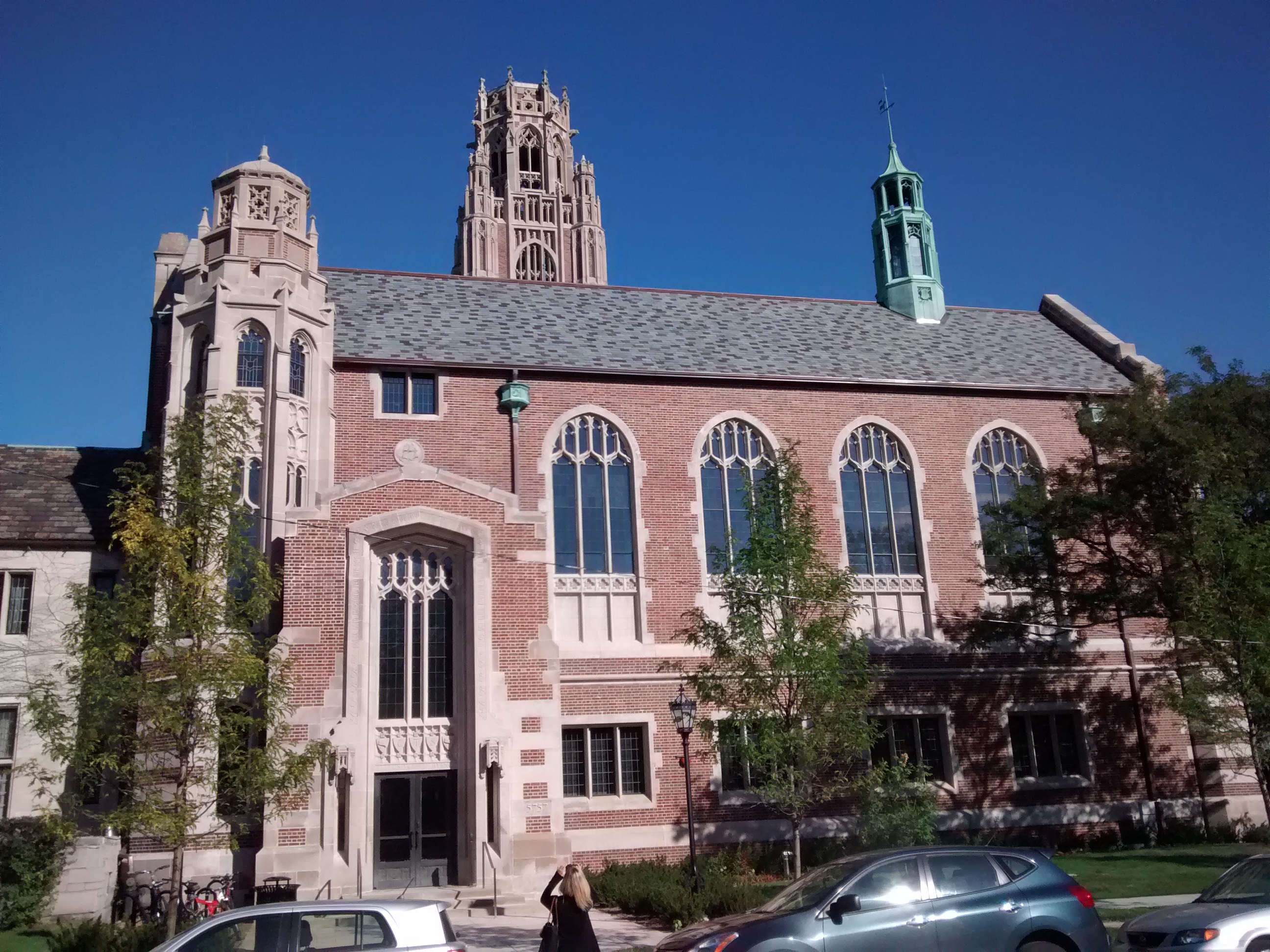|
Technostructure
Technostructure is the group of technicians, analysts within an organisation (enterprise, administrative body) with considerable influence and control on its economy. The term was coined by the economist John Kenneth Galbraith in '' The New Industrial State'' (1967). It usually refers to managerial capitalism where the managers and other company leading administrators, scientists, or lawyers retain more power and influence than the shareholders in the decisional and directional process.John Kenneth Galbraith, ''The New Industrial State'', p. 71 HMCO 1967 Historical context The power struggle between the technostructure and the shareholders was first evoked by Thorstein Veblen in "The Theory of the Leisure Class" (1899), questioning who, among the managers and the shareholders, should control the enterprise. At the time and until the end of the 1980s, the shareholders, unable to effectively regroup and organise themselves, could not exert enough pressure to effectively counter the ... [...More Info...] [...Related Items...] OR: [Wikipedia] [Google] [Baidu] |
Henry Mintzberg
Henry Mintzberg is a Canadian academic and author on business and management. He is currently the Cleghorn Professor of Management Studies at the Desautels Faculty of Management of McGill University in Montreal, Quebec, Canada, where he has been teaching since 1968. Early life Mintzberg was born on September 2, 1939, in Montreal, Quebec, Canada. He is the son of Jewish parents Myer and Irene (Wexler) Mintzberg. His father, Myer Mintzberg, was a manufacturer. Education Henry Mintzberg completed his first undergraduate degree in mechanical engineering at McGill University in 1961. During his time at McGill University he was in two honor societies, was a student council representative, a ''McGill Daily'' sports editor, a student athletic council chairman, and more. Mintzberg then went on to complete his second undergraduate degree in 1962. This degree was a Bachelor of General Arts and he received it from Sir George Williams University, which is now known as Concordia Universi ... [...More Info...] [...Related Items...] OR: [Wikipedia] [Google] [Baidu] |
John Kenneth Galbraith
John Kenneth Galbraith (October 15, 1908 – April 29, 2006), also known as Ken Galbraith, was a Canadian-American economist, diplomat, public official, and intellectual. His books on economic topics were bestsellers from the 1950s through the 2000s. As an economist, he leaned toward post-Keynesian economics from an institutional economics, institutionalist perspective. He served as the deputy director of the powerful Office of Price Administration (OPA) during World War II in charge of stabilizing all prices, wages and rents in the American economy, to combat the threat of inflation and hoarding during a time of shortages and rationing, a task which was successfully accomplished. Galbraith was a long-time Harvard faculty member and stayed with Harvard University for half a century as a professor of economics. He was a prolific author and wrote four dozen books, including several novels, and published more than a thousand articles and essays on various subjects. Among his works ... [...More Info...] [...Related Items...] OR: [Wikipedia] [Google] [Baidu] |
Ideologies
An ideology is a set of beliefs or values attributed to a person or group of persons, especially those held for reasons that are not purely about belief in certain knowledge, in which "practical elements are as prominent as theoretical ones". Formerly applied primarily to Economy, economic, Political philosophy, political, or Religion, religious theories and policies, in a tradition going back to Karl Marx and Friedrich Engels, more recent use treats the term as mainly condemnatory. The term was coined by Antoine Destutt de Tracy, a French Enlightenment aristocrat and philosopher, who conceived it in 1796 as the "science of ideas" to develop a rational system of ideas to oppose the irrational impulses of the mob. In political science, the term is used in a Linguistic description, descriptive sense to refer to List of political ideologies, political belief systems. Etymology The term ''ideology'' originates from French language, French , itself coined from combining (; close to ... [...More Info...] [...Related Items...] OR: [Wikipedia] [Google] [Baidu] |
Managerialism
Managerialism is the idea that professional managers should run organizations in line with organizational routines which produce controllable and measurable results. It applies the procedures of running a for-profit business to any organization, with an emphasis on control, accountability, measurement, strategic planning and the micromanagement of staff. Managerialists often justify it on the grounds of improving organizational efficiency, and management has become an academic discipline in its own right. Management scholars view management as a skill or unique style to be developed if one is to successfully manage an organisation. However, critics of the idea argue that managerialism is in fact a worldview similar to neoliberalism where each human is assumed to be an economically motivated homo economicus. New Public Management is one example of managerialism, where public services were reformed to be more 'businesslike', using quasi-market structures to manage areas su ... [...More Info...] [...Related Items...] OR: [Wikipedia] [Google] [Baidu] |
Accounting Scandals
Accounting scandals are business scandals that arise from intentional manipulation of financial statements with the disclosure of financial misdeeds by trusted executives of corporations or governments. Such misdeeds typically involve complex methods for misusing or misdirecting funds, overstating revenues, understating expenses, overstating the value of corporate assets, or underreporting the existence of liabilities; these can be detected either manually, or by means of deep learning. It involves an employee, account, or corporation itself and is misleading to investors and shareholders. This type of "creative accounting" can amount to fraud, and investigations are typically launched by government oversight agencies, such as the Securities and Exchange Commission (SEC) in the United States. Employees who commit accounting fraud at the request of their employers are subject to personal criminal prosecution. Two types of fraud Misappropriation of assets Misappropriat ... [...More Info...] [...Related Items...] OR: [Wikipedia] [Google] [Baidu] |
Neoliberal
Neoliberalism is a political and economic ideology that advocates for free-market capitalism, which became dominant in policy-making from the late 20th century onward. The term has multiple, competing definitions, and is most often used pejoratively. In scholarly use, the term is often left undefined or used to describe a multitude of phenomena. However, it is primarily employed to delineate the societal transformation resulting from market-based reforms. Neoliberalism originated among European Liberalism, liberal scholars during the 1930s. It emerged as a response to the perceived decline in popularity of classical liberalism, which was seen as giving way to a social liberal desire to control markets. This shift in thinking was shaped by the Great Depression and manifested in policies designed to counter the volatility of free markets. One motivation for the development of policies designed to mitigate the volatility of capitalist free markets was a desire to avoid repeatin ... [...More Info...] [...Related Items...] OR: [Wikipedia] [Google] [Baidu] |
Employee Retirement Income Security Act
The Employee Retirement Income Security Act of 1974 (ERISA) (, codified in part at ) is a U.S. federal tax and labor law that establishes minimum standards for pension plans in private industry. It contains rules on the federal income tax effects of transactions associated with employee benefit plans. ERISA was enacted to protect the interests of employee benefit plan participants and their beneficiaries by: * Requiring the disclosure of financial and other information concerning the plan to beneficiaries; * Establishing standards of conduct for plan fiduciaries; * Providing for appropriate remedies and access to the federal courts. ERISA is sometimes used to refer to the full body of laws that regulate employee benefit plans, which are mainly in the Internal Revenue Code and ERISA itself. Responsibility for interpretation and enforcement of ERISA is divided among the Department of Labor, the Department of the Treasury (particularly the Internal Revenue Service), and t ... [...More Info...] [...Related Items...] OR: [Wikipedia] [Google] [Baidu] |
Milton Friedman
Milton Friedman (; July 31, 1912 – November 16, 2006) was an American economist and statistician who received the 1976 Nobel Memorial Prize in Economic Sciences for his research on consumption analysis, monetary history and theory and the complexity of stabilization policy. With George Stigler, Friedman was among the intellectual leaders of the Chicago school of economics, a neoclassical school of economic thought associated with the faculty at the University of Chicago that rejected Keynesianism in favor of monetarism before shifting their focus to new classical macroeconomics in the mid-1970s. Several students, young professors and academics who were recruited or mentored by Friedman at Chicago went on to become leading economists, including Gary Becker, Robert Fogel, and Robert Lucas Jr. Friedman's challenges to what he called "naive Keynesian theory" began with his interpretation of consumption, which tracks how consumers spend. He introduced a theory w ... [...More Info...] [...Related Items...] OR: [Wikipedia] [Google] [Baidu] |
Chicago School (economics)
The Chicago school of economics is a Neoclassical economics, neoclassical Schools of economic thought, school of economic thought associated with the work of the faculty at the University of Chicago, some of whom have constructed and popularized its principles. Milton Friedman and George Stigler are considered the leading scholars of the Chicago school. Chicago macroeconomic theory rejected Keynesianism in favor of monetarism until the mid-1970s, when it turned to new classical macroeconomics heavily based on the concept of rational expectations. The Saltwater and freshwater economics, freshwater–saltwater distinction is largely antiquated today, as the two traditions have heavily incorporated ideas from each other. Specifically, new Keynesian economics was developed as a response to new classical economics, electing to incorporate the insight of rational expectations without giving up the traditional Keynesian focus on imperfect competition and sticky wages. Chicago econom ... [...More Info...] [...Related Items...] OR: [Wikipedia] [Google] [Baidu] |
Prentice Hall
Prentice Hall was a major American publishing#Textbook_publishing, educational publisher. It published print and digital content for the 6–12 and higher-education market. It was an independent company throughout the bulk of the twentieth century. In its last few years it was owned by, then absorbed into, Savvas Learning Company. In the Web era, it distributed its technical titles through the Safari Books Online e-reference service for some years. History On October 13, 1913, law professor Charles Gerstenberg and his student Richard Ettinger founded Prentice Hall. Gerstenberg and Ettinger took their mothers' maiden names, Prentice and Hall, to name their new company. At the time the name was usually styled as Prentice-Hall (as seen for example on many title pages), per an orthographic norm for Dash#Relationships and connections, coordinate elements within such compounds (compare also ''McGraw-Hill'' with later styling as ''McGraw Hill''). Prentice-Hall became known as a publi ... [...More Info...] [...Related Items...] OR: [Wikipedia] [Google] [Baidu] |
The New Industrial State
''The New Industrial State'' is a 1967 book by John Kenneth Galbraith. Three revised editions appeared in 1972, 1978 and 1985. Discussion In it, Galbraith asserts that within the industrial sectors of modern capitalist societies, the traditional mechanism of supply and demand is supplanted by the planning of large corporations, using techniques such as advertising and, where necessary, vertical integration. The book followed Galbraith's 1966 series of BBC Reith Lectures – a series of six radio broadcasts, also titled ''The New Industrial State'' – in which he explored the economics of production and the effect large corporations could have over the state. Galbraith argues that this is made necessary by the long-term planning required for production processes involving advanced technology (and that these same technological challenges were answered with similar types of planning in Soviet societies) which involve substantial additional risk. One of the results of this is, a ... [...More Info...] [...Related Items...] OR: [Wikipedia] [Google] [Baidu] |


